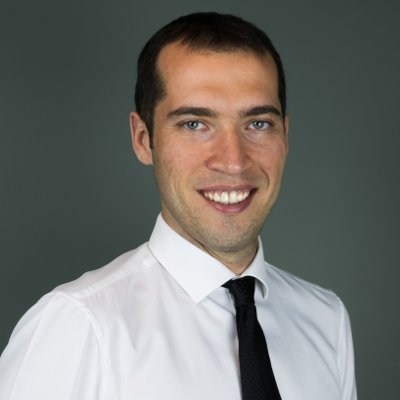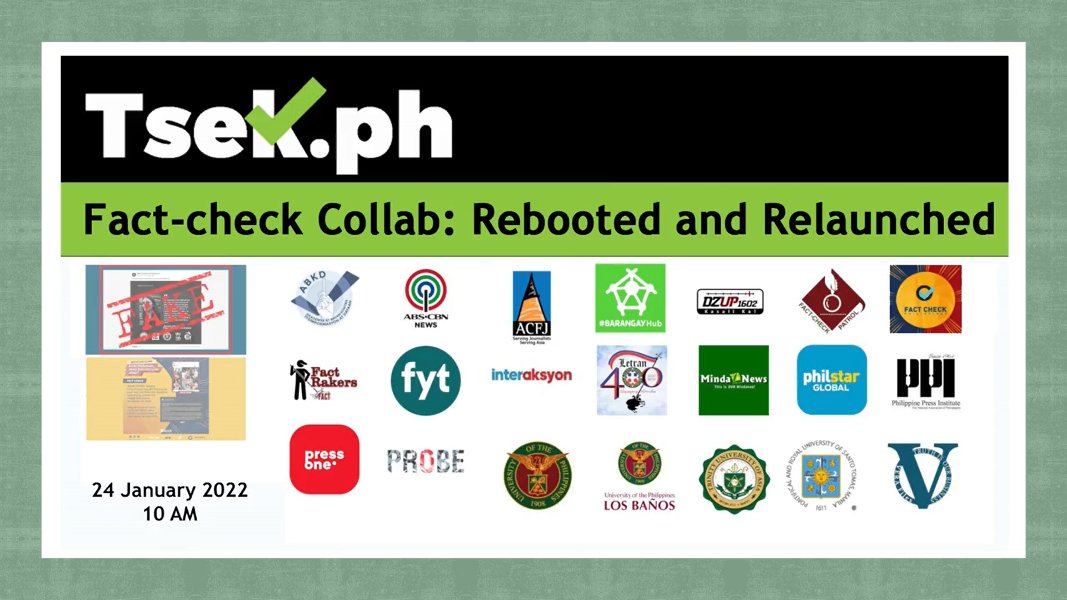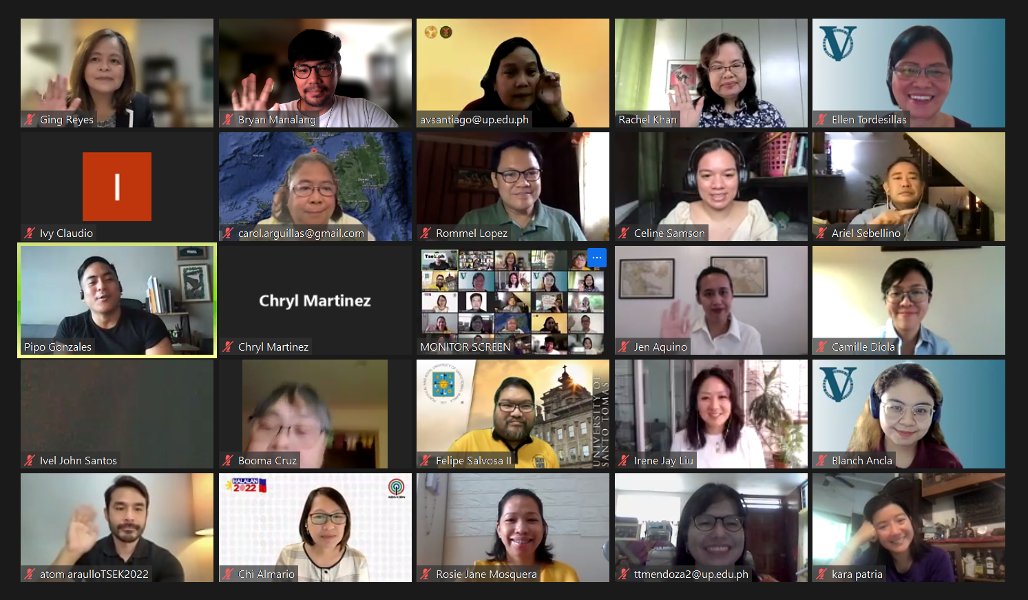Representatives from several prominent academic institutions, media and civil society organizations emphasized the significance of fact checking in fighting mis- and disinformation, especially with the upcoming May 2022 elections.
|
|
|
In his keynote speech at the Jan. 24 virtual relaunch of Tsek.ph, Baybars Orsek, director of the International Fact-Checking Network, said fact-checking holds the powerful accountable and contributes to creating a more informed citizenry.
Tsek.ph is the Philippines’ pioneering collaborative fact-checking project spearheaded by the University of the Philippines (UP) and launched in 2019 to combat disinformation.
“Fact checking today is at the intersection of accountability journalism and technology, serving the public true, multi-layered publishing. We rate state politicians, even sometimes we notarize the authenticity of all sources of multimedia, and we put our credibility at stake while doing both,” he said.

Baybars Orsek, Director of the International Fact-Checking Network
Orsek warned that fact checking will receive more scrutiny than ever amid the upcoming elections and advised fact checkers to be more transparent in their reporting. “Fact checking is supposed to be an ongoing discourse but one with the commitment to facts and accuracy,” he said.
In 2019, Tsek.ph was composed of three academic institutions and 11 media organizations. This year, initial members number 21 and it has become more diverse as it welcomed fact checkers from several civil society organizations and multi-sectoral organizations in its fight to counter disinformation.
Elena Pernia, UP Diliman vice president for public affairs, said Tsek.ph is a public service that plays a crucial role in creating a “responsible citizenship” and advancing “democratic values.”
“Initiatives like Tsek.ph are vital and necessary. Especially now, when an enlightened Filipino citizenry is key to our elections so that we are correctly informed about who and what the candidates running for national and local positions stand for,” she said.
Ging Reyes, head of ABS-CBN’s Integrated News and Current Affairs division, said Tsek.ph’s expansion should help with “debunking outright lies and false narratives” that will mislead voters.
“At a time when disinformation has become so rampant and the attacks against the truth and the truth-tellers, like us, have become so vicious, it has become a necessity for us to come together as one voice, united to set things straight,” she said.
Camille Diola, editor-in-chief of Philstar.com, said media organizations should discard their “perceived” competition with one another and unite against disinformation “at a most crucial time.” “It is only right, and it is a necessity that we set differences aside and work in concert through Tsek.ph,” she said.
Luz Rimban, executive director of Asian Center for Journalism at the Ateneo de Manila University said they are “proud to be a part of Tsek.Ph. ACFJ and students from the Guidon, AdMU’s official student publication, are eager to take part and will be making public its initiatives on fact-checking in the coming weeks.”
The University of Santo Tomas (UST) is likewise part of the fact-checking collaborative project. Felipe Salvosa, Journalism Program Coordinator of the UST, said they are “proud” to be part of the project. “As journalists and journalism educators, our first obligation is to the truth. And this aligns with our official university motto, veritas in caritate, truth in charity. Truth — addressing the problem of disinformation, fighting fake news — is our obligation to one another,” he said.
VERA Files gave its pledge as one of the media partners of Tsek.ph. Celine Samson, head of VERA Files’ online verification team, said the organization is renewing its ties with the collaboration group to make Filipinos better-informed citizens. “We are committed to holding truth to power: to challenge and correct false and misleading claims from public figures, including those from candidates, as well as to correct disinformation that circulates online and give context where it is needed,” she said.
Initial members of rebooted Tsek.ph include Asian Center for Journalism at the Ateneo de Manila University, Colegio de San Juan de Letran, Trinity University of Asia Communication Department, University of the Philippines (UP) Los Baños, Fact Check Patrol and FactRakers from the UP Department of Journalism, University of Santo Tomas, ABS-CBN, DZUP, FYT, InterAksyon, MindaNews, PhilStar Global, Philippine Press Institute, Press One, Probe, VERA Files, Akademiya at Bayan Kontra Disimpormasyon at Dayaan, and Fact Check Philippines.

